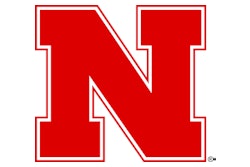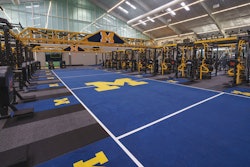Copyright 2018 The Deseret News Publishing Co.
Deseret Morning News (Salt Lake City)
SALT LAKE CITY — This year, athletes at the Winter Olympic Games will be given 110,000 condoms. That's 37 per person, more condoms than have been distributed at any previous Winter Games.
"Everyone sleeps around in the Olympic village," said Kate Hansen, a 25-year-old retired luger who competed at the 2014 Olympics in Sochi.
According to Hansen, a Mormon who graduated from Brigham Young University with a degree in public relations last year, once athletes are done competing, the partying starts.
"Every hour of your life was planned up until that moment. After you compete, you're off the hook," said Hansen. "If someone is sexually active, which I am not, you're definitely scoping people out."
At the 2016 Summer Olympics in Rio, Tinder use skyrocketed, and matches in the Olympic village increased by 129 percent after the first weekend of competition, according to news reports. ESPN has reported crazy parties, bonfires made from village furniture and lots of alcohol at previous Olympics.
Just like film and music festivals, sporting events involving large crowds and alcohol often create situations where sexual assault is likely to occur, according to experts like Laura Palumbo from the National Sexual Violence Resource Center. Add to this the notoriously rowdy party culture of celebratory athletes in the Olympic village, as well as the power differentials between coaches, athletes and fans, and it's a recipe for danger, she said.
This year, event organizers have taken extra measures to make sure the Olympic Games are safe for everyone, including attendees, athletes and staff. For the first time in Olympic history, four sexual violence counseling centers have been set up outside major sporting facilities and the International Olympic Committee has released a new online toolkit to help national groups educate and protect athletes. The U.S. Olympic Committee has also revamped its Safe Sport program with the creation of the U.S. Center for Safe Sport, which now has independent authority to investigate allegations of misconduct involving U.S. Olympic teams and a new code of conduct that will hold American coaches and staff to a higher standard. Less than a year after the center was created in March 2017, they've taken on 409 cases of misconduct across 35 sports.
Nancy Hogshead-Makar, a civil rights lawyer and founder of Champion Women, an advocacy group for female athletes, was 22 years old when she went to the 1984 Olympics in Los Angeles, where she won three gold medals and a silver for swimming.
She said she was so happy with her wins and so busy celebrating afterwards that she didn't sleep for three days. Hogshead-Makar recalls a police escort taking her to Disneyland, where she was allowed to ride roller coasters as many times as she wanted and sneaking drunk people past the coaches back into the village.
Athletes in that environment feel they are invincible, according to Hogshead-Makar, and with alcohol in the mix, people can easily get hurt.
"There's risks on both sides of drinking so much," she said. "Athletes don't know how much they can drink and don't have very much body fat. Men may also not know that they get aggressive when they drink too much and don't understand the signals women are sending."
At the Olympics, athletes as young as 15 are treated the same as adult athletes, and there are no special accommodations for minors in the Olympic village, according to former athletes. Young teenagers stay with their coaches and teammates, just like everyone else.
"You can't have this isolated group of young, powerful athletes in one place who are partying and everything else, and not have [rape] happen," said Katherine Redmond, founder of the National Coalition Against Violent Athletes. "The problem is there are so many pressures athletes face that would deter them from reporting."
Despite the likelihood that rape has occurred, according to Redmond, there haven't been any public reports of athletes being sexually assaulted in the Olympic village. And traditionally, sexual assault is not something that has been addressed at the Olympics.
"It's not like I went to the Olympics thinking I was nervous (or) something was going to happen," said Kate Hansen. "At that level, you're all so focused about what you're supposed to do."
"The last thing on my mind was I need to protect myself sexually," she said.
Sports culture
When successful athletes or coaches are the perpetrators of sexual violence, it can be difficult to hold them accountable. Two-time gold medal-winning Taekwondo athlete Steven Lopez and his brother Jean Lopez, who coaches the sport, were allowed to participate in last summer's Rio Games even though they were both being investigated by USA Taekwondo for allegedly sexually assaulting multiple women, including teammates.
"The societal idolatry we give to high-level athletes and performers can be dangerous. We want to believe these people are fantastic and have pure motives, but that's not always the case," said Laura Finley, an associate professor who focuses on gender violence at Barry University in Miami. She said that athletes in certain sports, such as football, are overrepresented as domestic abusers.
"Certain athletes bond over misogynistic, hyper masculine norms," said Finley. "We encourage them to be hyper aggressive in their sport, and it's sometimes challenging for people to turn that off."
Because of the work that Hogshead-Makar does, she is more concerned about young athletes who can easily be taken advantage of by adults with whom they work. The conviction of Larry Nassar, a former USA Gymnastics and Michigan State University doctor who sexually assaulted more than 150 girls, has brought national attention to the issue.
"It's a culture of obedience," said Hogshead-Makar. In her experience, families idolize successful coaches and athletic trainers, which makes them less cautious than other parents might be in similar situations.
Zach Lund, a former Olympic skeleton racer from Salt Lake City who is now a coach for the U.S. National Team, saw his coach, Tim Nardiello, suspended over sexual harassment charges in 2006. "As a dad of three daughters, it's a big issue to me," said Lund. In his opinion, the most important thing parents can do is talk to their children and set clear guidelines about what is acceptable.
"I can see how those situations would transpire," said Hansen. "I spent more time with my coaches one-on-one than I spent with my dad. In a situation where that is your normal and you want to go to the Olympics so bad, you'll do whatever it takes."
Hansen is quick to note that the Olympics are just two weeks out of an athlete's entire career. She left home at the age of 15 and was living in Europe on and off with coaches and teammates from that time until age 21. Although she didn't think about it at the time, she realizes now that she was put in some vulnerable situations.
"I am lucky that my coaches were good guys," she said.
Still, she thinks it's important to keep in mind that for the majority of people in sports, sexual assault is a non-issue.
"The Larry Nassar case was a perfect storm," she said. "You can't assume across the board that it is happening elsewhere as well."
What is being done
The four first-time sexual violence counseling centers, sponsored by the local Korean government, are staffed by Korean and English speakers and also provide over-the-phone translation in 13 languages. A report hotline is available 24-7 to cover the hours when the centers are closed.
According to Palumbo from the National Sexual Violence Resource Center, any large public event can become a magnet for sexual predators. The crowds create anonymity and the prevalence of alcohol makes it easier to take advantage of people.
"Someone who is harassing, or abusing another person is using the fact that they are in this crowded setting where they might not be easily recognized as an opportunity to cause harm," said Palumbo.
An international event like the Olympics adds another potentially dangerous factor, according to Palumbo. Language barriers and cultural differences may affect someone's ability to interpret the actions of another, she said.
In addition to the conviction of Nassar, media reports have followed an investigation into sexual assault allegations against Israel's Alex Gilady, vice chair of the Tokyo 2020 Coordination Commission. An independent probe found that more than 100 Canadian Olympic Committee employees had either experienced or witnessed harassment in 2016, after allegations of sexual harassment against former president Marcel Aubut came to light. And South Koreans are facing the phenomenon of sexual violence in athletics as well. The Center for Human Rights in Sports, a part of the Korea Sport and Olympic Committee, received more than 170 reports between 2012 and 2017, according to Korea Joongang Daily.
"It's starting to get the attention it deserves," said Lund. "Now that people's careers and livelihoods are being affected by it, hopefully it will start changing."
At this year's Winter Olympics, the International Olympic Committee has implemented a new plan to help athletes and other participants stay safe. It includes having what they call a "safeguarding officer" on site to help manage cases of harassment and abuse, distribute educational materials to athletes in the Olympic village, and set up a hotline whereby athletes can report any incidents, the committee explained to the Deseret News in an email.
"When someone experiences harassment or assault, they are often so overwhelmed by their experience, it can be difficult to process the next steps and figure out where to go for help," said Palumbo. "Taking the step to give people multiple opportunities to report is a powerful deterrent."
EMAIL: [email protected]
Read More of Today's AB Headlines
Subscribe to Our Daily E-Newsletter
Terms and Conditions Privacy Policy































